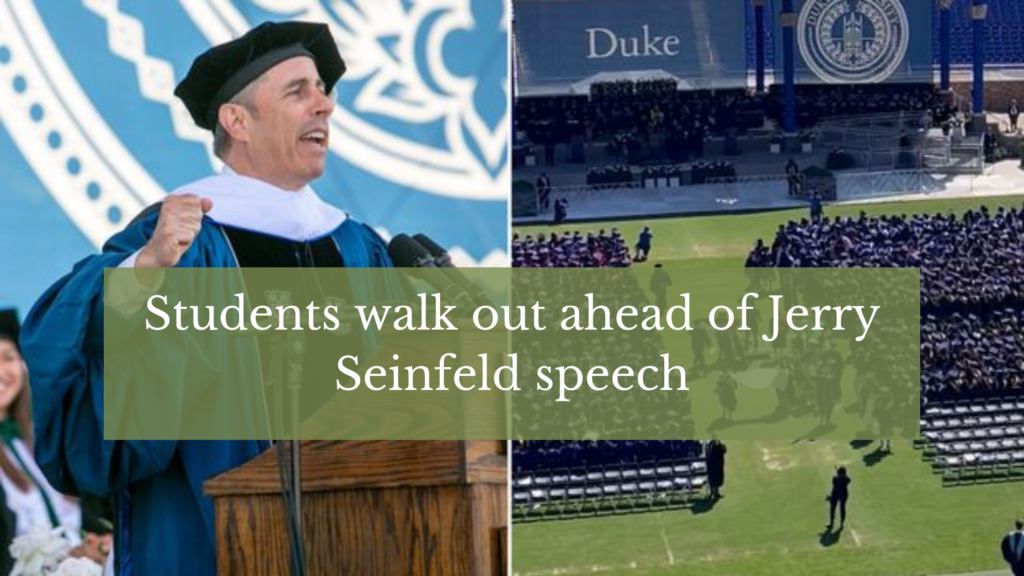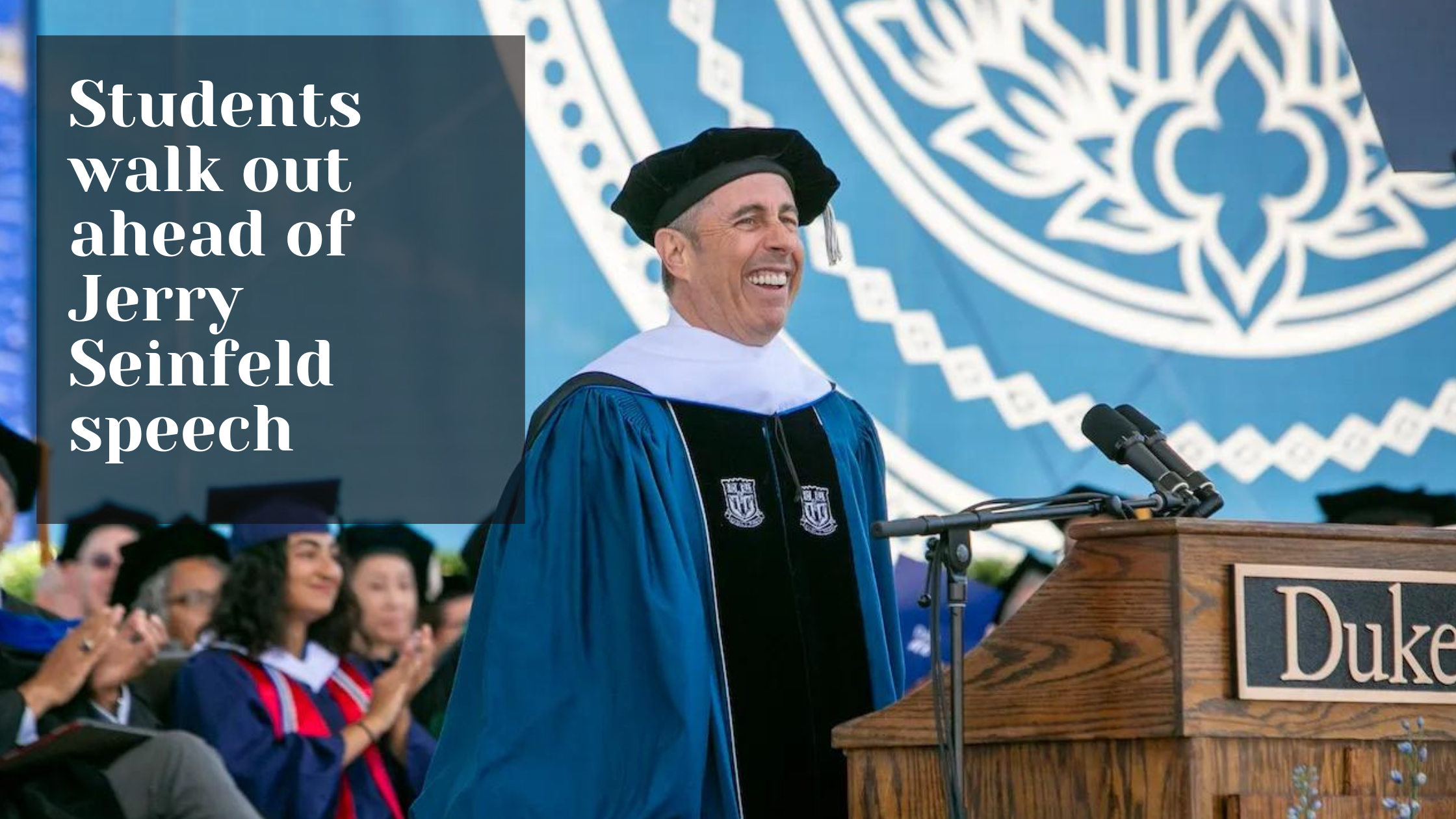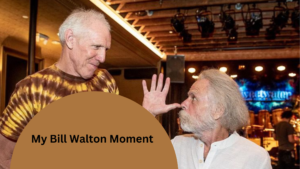In a new occasion that has ignited banters across grounds and virtual entertainment stages, understudies at [University Name] stood firm by leaving in front of comic Jerry Seinfeld’s planned discourse. While the eminent jokester is commended for his sharp mind and notable sitcom, “Seinfeld,” his appearance at the college was met with contention, featuring more extensive conversations on free discourse, drop culture, and the obligations of well known people.
The choice to leave was not a rash demonstration but rather an intentional reaction to Seinfeld’s past comments and parody schedules that a few understudies considered hostile or inhumane. In the period of uplifted attention to civil rights issues, especially concerning race, orientation, and character, people and gatherings are progressively examining well known people and considering them responsible for their words and activities.
Seinfeld’s kind of humor, described by observational satire frequently revolved around ordinary parts of life, has earned both praise and analysis. While many hail his capacity to find humor in the common, others contend that his jokes now and again drift into an area that downplays or underestimates specific gatherings. Pundits highlight examples where Seinfeld has poked fun at race, orientation, and other delicate subjects, proposing that his parody sustains unsafe generalizations or neglects to perceive the intricacies of resided encounters.
The choice to leave Seinfeld’s discourse mirrors a more extensive pattern inside scholar and dissident circles where understudies are progressively vocal about their assumptions for inclusivity and responsibility. Colleges, once seen as strongholds of free discourse, are currently wrestling with the intricacies of adjusting free articulation with establishing a protected and comprehensive climate for all understudies. This pressure frequently appears in banters over who ought to be given a stage to talk nearby and under what conditions.

Pundits of the walkout contend that it smothers discourse and propagates a culture of control, where disagreeing voices are hushed as opposed to connected with. They contend that drawing in with dubious speakers, even those with perspectives or humor considered hostile, is a chance for scholarly development and decisive reasoning. Besides, they fight that leaving a speaker just supports closed quarters, where people are protected according to points of view that challenge their own convictions.
Then again, defenders of the walkout state that it is a type of serene dissent and a way for underestimated networks to declare their organization and request responsibility from those in places of impact. They contend that while free discourse is fundamental, it doesn’t pardon people of the results of their words, especially when those words sustain hurt or support existing power elements. Leaving a speaker, they contend, sends a strong message that specific perspectives or types of articulation are not wanted in spaces that imply to focus on inclusivity and variety.
In exploring these mind boggling issues, colleges should find some kind of harmony between maintaining standards of free discourse and establishing a climate where all understudies have a good sense of security and regarded. This requires smart exchange, hearty discussion, and a promise to cultivating a comprehensive grounds culture. While the walkout at [University Name] might have been troublesome, it has reignited significant discussions about the obligations of people of note, the restrictions of free discourse, and the continuous battle for value and equity in the public arena. As grounds keep on wrestling with these issues, they genuinely should remain spaces where various viewpoints are heard, regarded, and drew in with sincerely.



